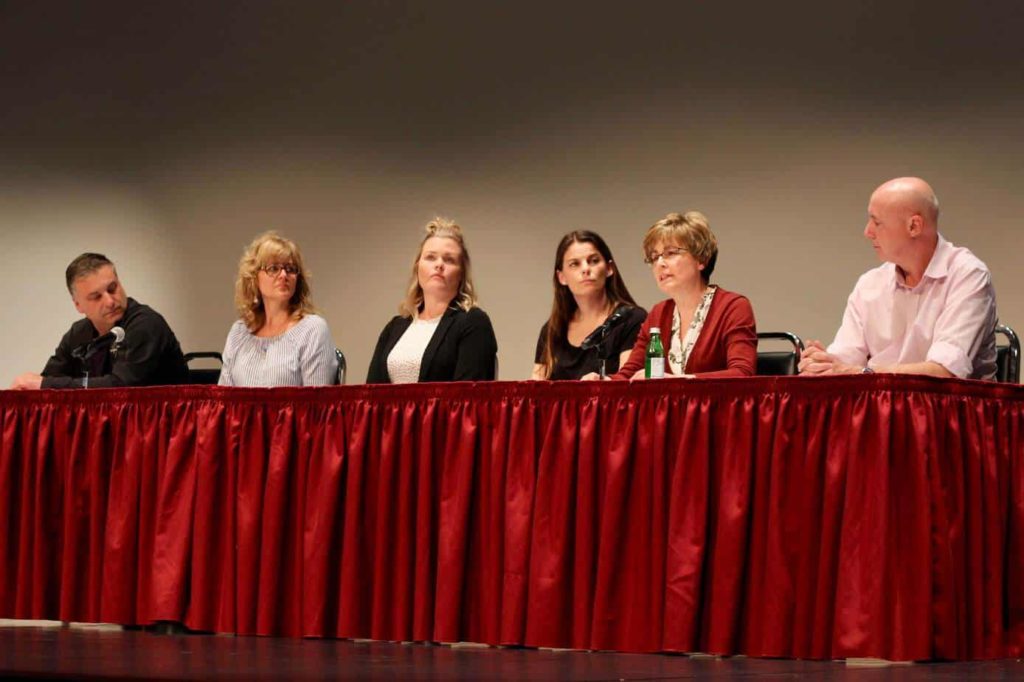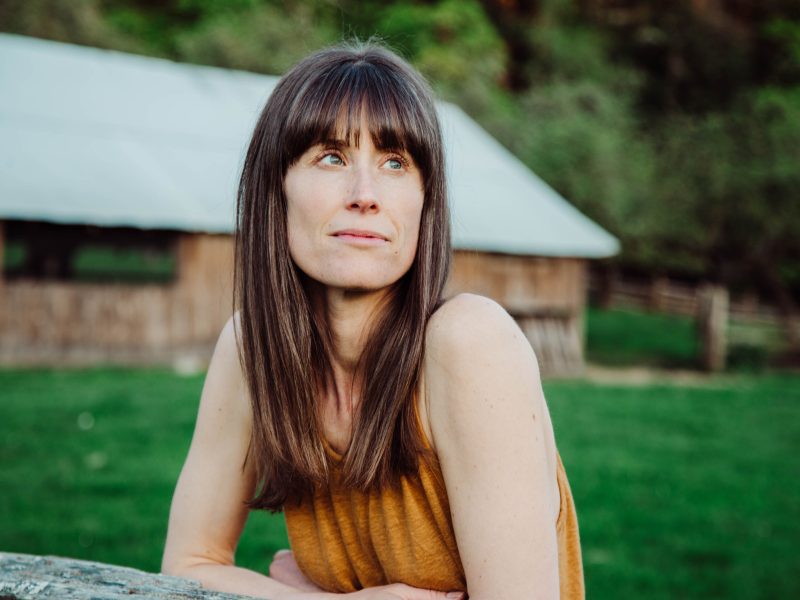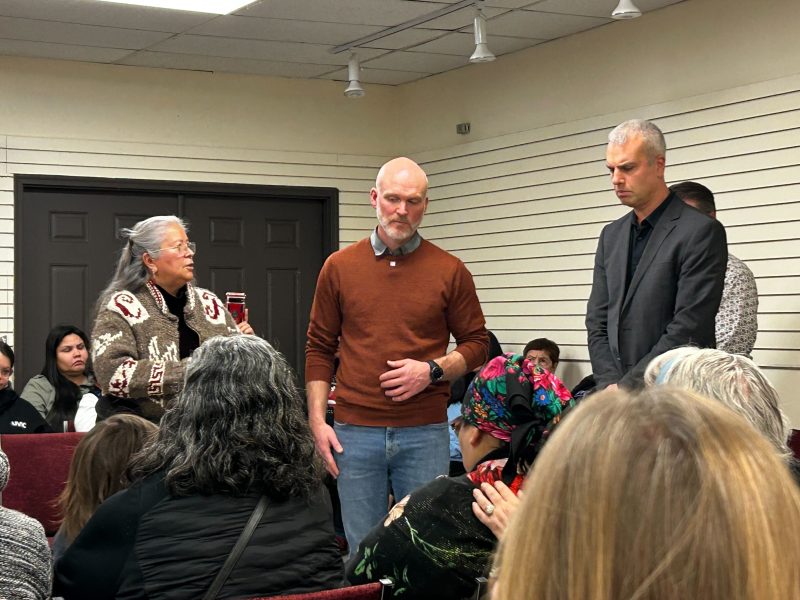
This is from the Cowichan Valley’s weekly newsletter. If you like what you’re reading, help grow this community by encouraging your friends to subscribe.
Last week, I went to screening of A Just Society, a short documentary about Vancouver Island’s opioid overdose crisis, at the Cowichan Performing Arts Centre. I was struck first by the size of the crowd. The auditorium, which seats 731, wasn’t full but it was close, with just a couple rows at the front fully empty. It was a testament to how deeply addictions issues run in our community; few are unaffected.
The film told the stories of people with substance use disorders in southern Vancouver Island, mainly Victoria and the Cowichan Valley. The filmmaker, Nick Versteeg, also interviewed support workers, doctors and others on the front lines. It emphasized the need for housing and improved access to a spectrum of treatment and support. I commend the film for giving a voice to those often left out of the conversation, and for taking a compassionate approach by centering the experiences of people who use drugs. At the same time, some important pieces of context were left out, like the role drug policy plays in the crisis.
As every storyteller knows, context matters. And deciding what parts of a complex social problem like the opioid overdose crisis to include – and what to leave out – isn’t easy. Based on what I’ve learned from you all so far about this crisis, here’s some of what I wish more journalists and media outlets would consider when diving into this tricky territory.
-
- Harm reduction works. A harm reduction approach to drug use supports people to use in safer ways and doesn’t require abstinence as a prerequisite to access. There is ample evidence that harm reduction strategies — including needle exchanges, supervised consumption sites, methadone maintenance programs, and much more — lead to better health and social outcomes for people who use drugs and their communities.
- Failed drug policies have fuelled the overdose crisis. Criminalization is ineffective at preventing drug use. What criminalization does is separate and stigmatize people who use drugs, which makes it harder for them to make better choices for themselves and their communities. Since Portugal decriminalized all drugs in 2001 and prioritized treatment and harm reduction interventions, they’ve found that people got healthier and streets got safer. Overdose deaths dropped from about 360 a year to 27.
- Language matters. One of the pillars of Portugal’s successful drug policies is that there aren’t good or bad drugs, just healthy and unhealthy relationships with them. That makes sense to me; opioids, after all, can be excellent drugs if you happen to need surgery. I’m trying to use language that reflects this and doesn’t further stigmatize people who use drugs. I’m listening to people in the trenches to try to choose better words: “substance use disorder” is preferred by some over “drug addiction”; “overdose crisis” rather than of “opioid crisis”; “people who use drugs” instead of “addicts,” “druggies” or “junkies.”
- Environment matters. In the TED Talk “Everything you think you know about addiction is wrong,” journalist Johann Hari shares the wisdom he gained from several years investigating drugs and addiction around the world. His insight is profound: It’s not drugs that cause addictions, it’s our environments. It’s social isolation and disconnection. Addiction, whether it’s to heroin or a smartphone, is just the thing we attach ourselves to when we don’t find the human attachments we seek, and need. The opposite of addiction, he says, is not sobriety, but connection. Or, you might say, community.
After the film, the producer moderated a panel and audience Q&A with six local experts. There was a lot of hurt in the room. Many spoke of loved ones lost to addictions. Some spoke of neighbourhoods and businesses threatened by crime. Not everyone agreed on where resources should be concentrated. But everyone was there together, hoping for a better world. I think we can get there, if we can first understand that we’re truly all in this together.
What context do you think is missing from the media coverage of the opioid overdose crisis? Send me a note in reply to this email.
Spotlight

The Brass Knuckle Derby Dames’ Bumble Beest punches through the pack with two of the opposing Rink Minx hot on her tail at a roller derby bout at the Cowichan Exhibition on March 30. The event opened BKDD’s derby season and closed out this year’s Cowichan Valley International Women’s Day Festival.
News of the week
- The Aboriginal Peoples Television Network published an investigation into Cowichan’s missing and murdered people this week. Families are still searching for three men that have disappeared in the last 12 years.
- The future name of the Island Savings Centre remains uncertain, the Cowichan Valley Citizen reports. Although it was announced that the name would revert to the Cowichan Community Centre, the Cowichan Valley Regional District now says it will consider other options, possibly in consultation with Cowichan Tribes.
- The Town of Ladysmith has harvested timber blown down in December’s windstorm and is using it for public works projects, My Cowichan Valley Nowreports. Some of the wood has been used to install a new cover for the log birling pond at the Transfer Beach Amphitheatre.
Let’s gather
- April 5: It’s eggs for breakfast and Indian tacos for lunch this Friday from 8 a.m. to 4 p.m. at Si’em’ Lelum Gymnasium. The event, which also includes a loonie and toonie draw, is a fundraiser for Cowichan’s Walk for Missing and Murdered Men, Women and Children, which will take place April 13.
- April 6: Communities across B.C. are participating in the inaugural Forest March BC, a day of province-wide action to call for updated forestry practices and better community consultation. There are events planned in Duncan and in Youbou.
- April 7: Join the Cowichan Valley Naturalists’ Society at the Cow Bay Pub for a burger-and-beer fundraiser to bring back the bluebird (how’s that for alliteration) to Cowichan’s rare Gary Oak ecosystems. [end]
This is from the Cowichan Valley’s weekly newsletter. If you like what you’re reading, help grow this community by encouraging your friends to subscribe.



